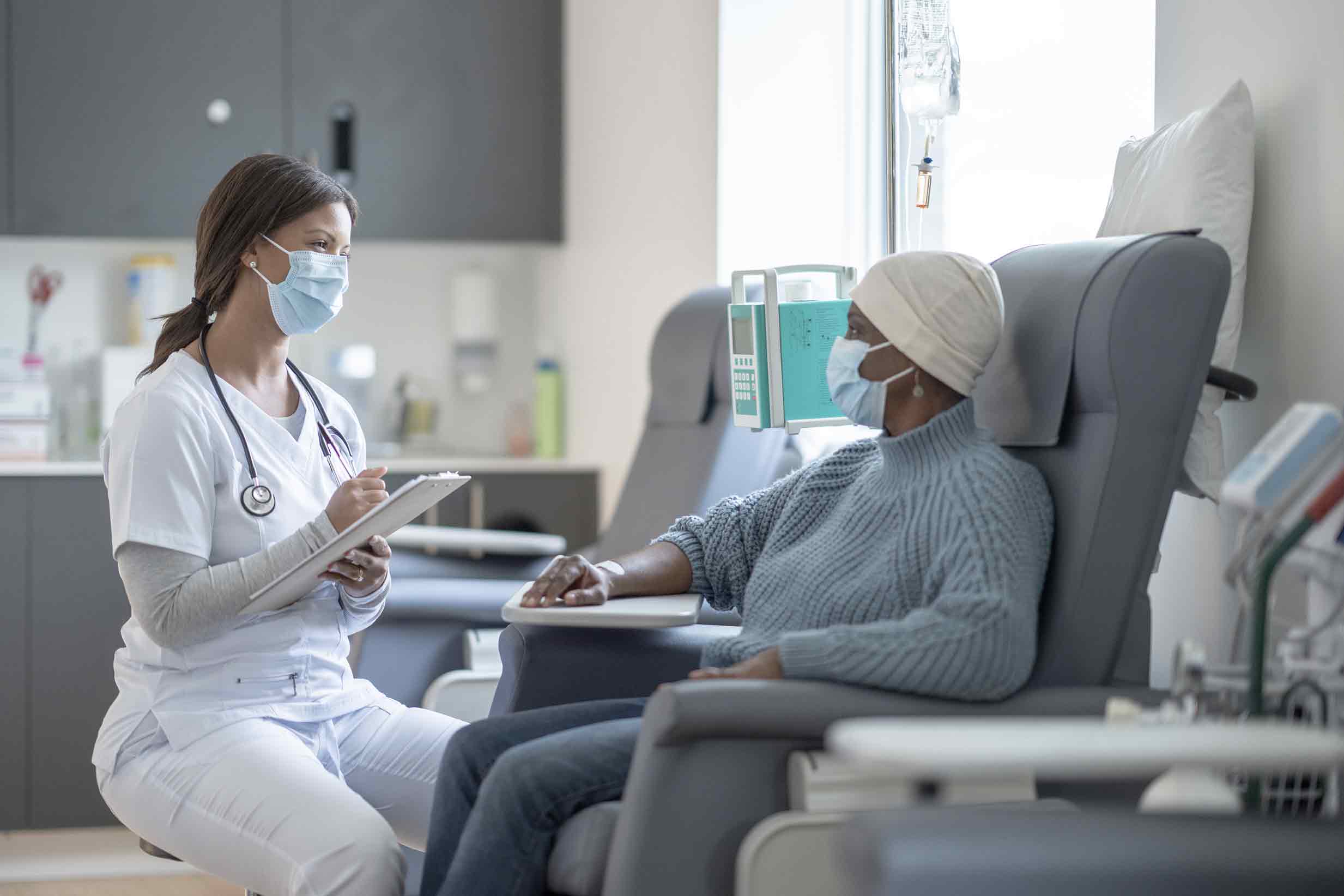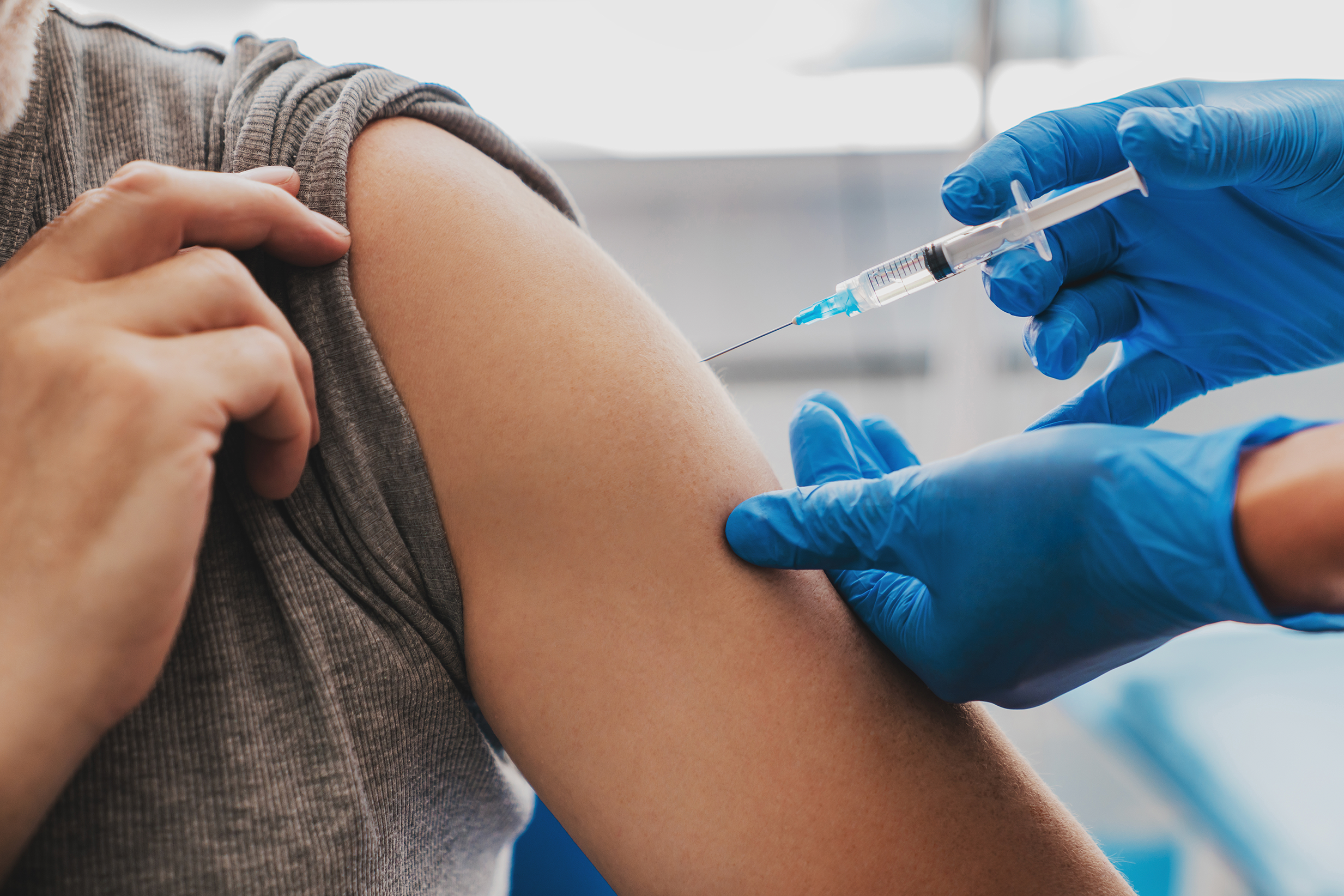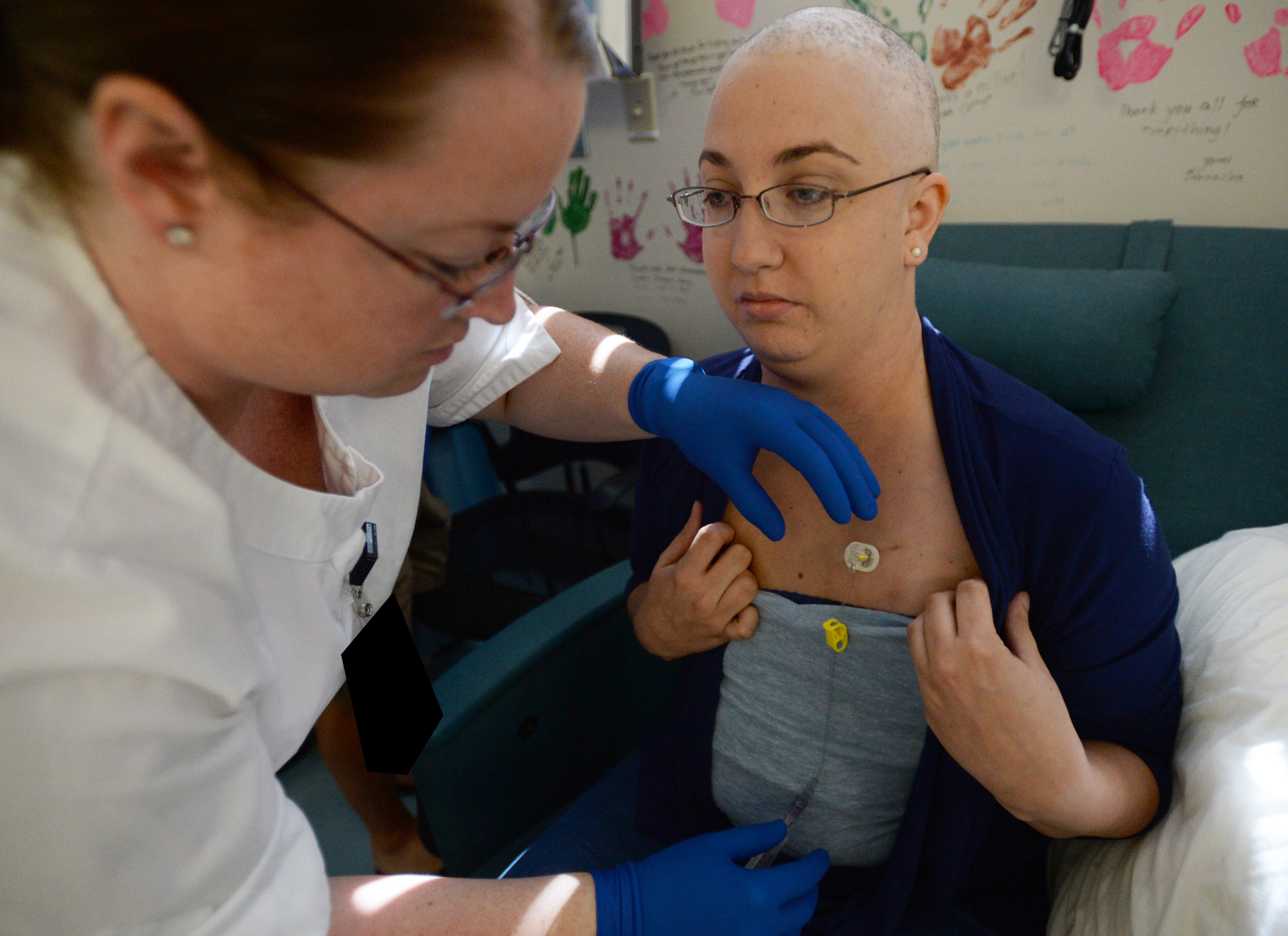Triple-Negative Breast Cancer (TNBC)
Updated on January 8, 2026
Hearing the words, “You have triple-negative breast cancer,” can be stressful and scary — in part because triple-negative breast cancers are less common and behave differently than other breast cancers. But many, many people thrive after a TNBC diagnosis, including Maimah Karmo, diagnosed in 2006, who is president and founder of the Tigerlily Foundation, and Ricki Fairley, diagnosed in 2011, who is founder and CEO of TOUCH, the Black Breast Cancer Alliance.
Triple-negative breast cancer (TNBC) is invasive breast cancer that:
does not have receptors for the hormone estrogen (called estrogen receptor-negative)
does not have receptors for the hormone progesterone (called progesterone receptor-negative)
does not have higher than normal levels of the protein HER2 (called HER2-negative)
Because of this, triple-negative breast cancers don’t respond to hormonal therapy medicines or the medicines that target the HER2 protein. As a result, triple-negative breast cancer may be harder to treat than other types of breast cancer because there are fewer treatment options. Some doctors consider TNBC to be more aggressive than other types of breast cancer because it tends to grow faster.
Still, the aggressiveness of a cancer also depends on its size and stage. And while TNBC may have fewer treatment options, there are several effective TNBC treatments. Researchers are also working to develop new treatments and figure out how to better tailor treatments to each person’s unique diagnosis and situation.
“My journey with triple-negative breast cancer has been filled with ups and downs, tears and laughter, but it has also been a journey of self-discovery and resilience.”
– Dr. Charlotte de Brabandt, Breastcancer.org Community member
Risk factors for triple-negative breast cancer
Although anyone can develop triple-negative breast cancer, there are certain groups that are more likely to be diagnosed with TNBC. This includes people who are younger than 40, are Black, or have a BRCA1 mutation. For example, a 2022 study found that Black women have more than double the risk of being diagnosed with triple-negative breast cancer than white women.
Other risk factors for TNBC include a family history of breast cancer, using birth control pills for more than 10 years, and/or having dense breasts.
Symptoms of triple-negative breast cancer
Some people with TNBC have no symptoms at all. But in general, the symptoms of TNBC are similar to other types of breast cancer and may include:
a lump in the breast or armpit area
swelling of all or part of the breast, even if there is no lump
breast skin irritation or dimpling
breast pain
nipple pain or the nipple turning inward
nipple discharge that isn’t breast milk
Diagnosing triple-negative breast cancer
Doctors may use several tests, including a breast physical exam, mammogram, breast MRI, breast ultrasound, and a breast biopsy, to determine if a person has TNBC. After triple-negative breast cancer is diagnosed, your doctor may recommend other types of tests, such as genomic testing or genetic testing.
Stages of triple-negative breast cancer
Doctors use the same system to stage TNBC as they do to stage other types of breast cancer: It’s determined by the cancer’s characteristics, such as its size, grade, and whether there are cancer cells in the lymph nodes. A breast cancer’s stage is usually written as a Roman numeral from 0 through IV — with stage 0 describing non-invasive cancers that stay in their original location and stage IV (or 4) describing invasive cancers that have spread outside the breast to other parts of the body. Stage IV cancer is also called metastatic.
The stage of the cancer helps you and your doctor:
figure out your prognosis, the likely outcome of breast cancer treatment
decide on the best treatments for you
determine if certain clinical trials may be a good option for you
Treatments for triple-negative breast cancer
There are several standard treatment options for triple-negative breast cancer. You and your doctor will develop a treatment plan that takes into account the characteristics of the cancer and your preferences.
Surgery
Depending on the characteristics of the cancer, your doctor may recommend a mastectomy or lumpectomy to remove the cancer.
Radiation therapy
If you have lumpectomy, it’s common to have radiation therapy after surgery. If you have a mastectomy, your doctor may or may not recommend radiation, depending on the characteristics of the cancer.
Chemotherapy
Chemotherapy uses one or more medicines to slow or stop the growth of cancer cells. Chemotherapy is a common treatment for TNBC and may be given before surgery, which is called neoadjuvant chemotherapy, or after surgery, which is called adjuvant chemotherapy.
Targeted therapy
If the TNBC is metastatic, you may be prescribed Trodelvy (chemical name: sacituzumab govitecan-hziy). Trodelvy targets the Trop-2 protein, which is found in about 80% of breast cancers. If you have a BRCA mutation, your doctor may recommend a PARP inhibitor like Lynparza (chemical name: olaparib) or Talzenna (chemical name: talazoparib).
Immunotherapy
Immunotherapy medicines stimulate your body’s immune system to attack cancer cells. Keytruda (chemical name: pembrolizumab) is used to treat early-stage triple-negative disease with a high risk of recurrence, as well as PD-L1-positive metastatic triple-negative breast cancer.
Personal Stories From People Diagnosed With TNBC
Read more personal storiesTriple-negative breast cancer prognosis and survival rates
If you’ve been diagnosed with TNBC, your prognosis is your doctor’s estimate of your future health after treatment.
Doctors often use survival rates to talk about prognosis. While some people want to know the statistics for others in a similar situation, other people would rather not know. It makes sense to consider how much you want to know about survival statistics before you read beyond this point.
TNBC survival rates are based on the outcomes of many people diagnosed with triple-negative disease, but they can’t predict exactly what will happen to you. It’s also important to remember that these rates aren’t based on people who are diagnosed today. Thanks to advances in medicine, the five-year survival rate of someone starting treatment today could be very different from someone who was treated years ago.
According to Breastcancer.org medical adviser Kevin Fox, MD, the risk of early-stage triple-negative breast cancer recurring is highest in the five years after diagnosis and drops dramatically after that.
TNBC overall five-year relative survival rates
The National Cancer Institute (NCI) calculates five-year relative survival rates for women with specific subtypes of breast cancer. The numbers come from the Surveillance Epidemiology and End Results (SEER) database. Relative survival rates compare the survival of people diagnosed with breast cancer to people who haven’t been diagnosed with breast cancer over a period of time. This time period is often five years after diagnosis or five years after treatment starts. Five-year relative survival is calculated by dividing the percentage of people who’ve been diagnosed with breast cancer who are alive at the end of the five years by the percentage of people of the same sex and age who haven’t been diagnosed who are alive at the end of the same time period.
For women diagnosed with TNBC between 2015 and 2021, the relative survival rate is 78.4%.
TNBC five-year relative survival rates by stage
The NCI also publishes five-year survival rates by stage and breast cancer subtype using SEER data. But the SEER database doesn’t group cancers by clinical stage (stage I, stage II, etc.). Instead, it classifies cancers as:
localized: there is no sign the cancer has spread outside the breast; this only includes invasive breast cancer — DCIS cases aren’t included
regional: the cancer has spread outside the breast to nearby tissues or lymph nodes
distant: the cancer has spread to parts of the body away from the breast, such as the lungs, liver, or bones; this is stage IV or metastatic cancer
For TNBC, the five-year relative survival rates are:
localized: 92.4%
regional: 67.4%
distant: 14.9%
Research on treatments for triple-negative breast cancer
There are many studies looking for new and better treatments for triple-negative breast cancer, including new types of chemotherapy medicines and new immunotherapy medicines.
These episodes of The Breastcancer.org Podcast feature top-tier scientists discussing the latest research on TNBC treatments.



